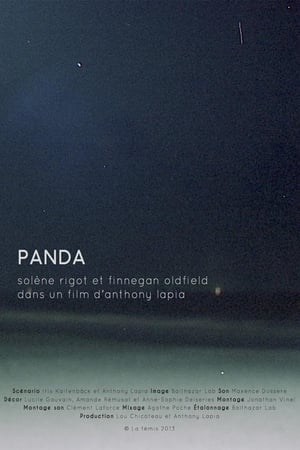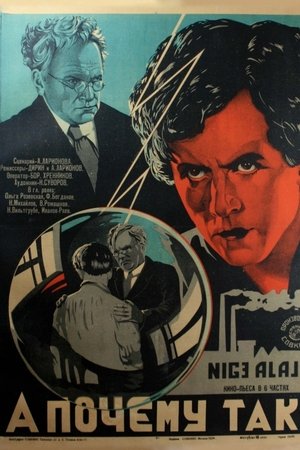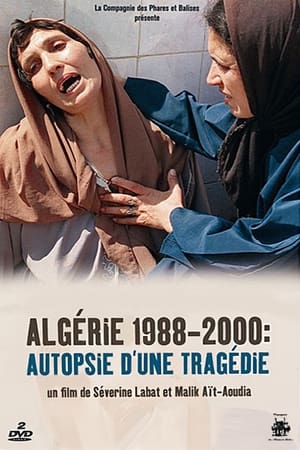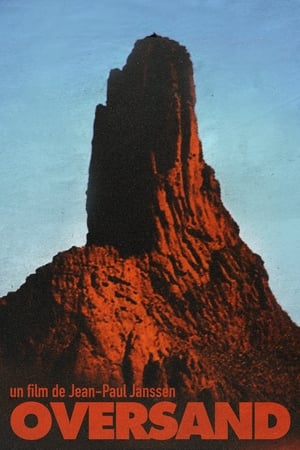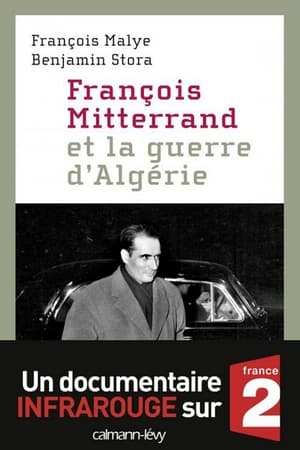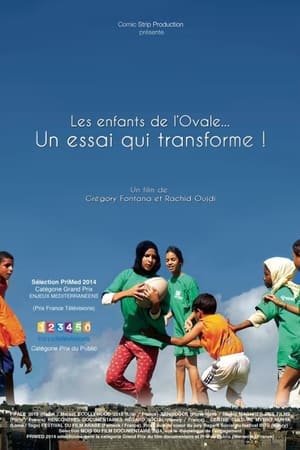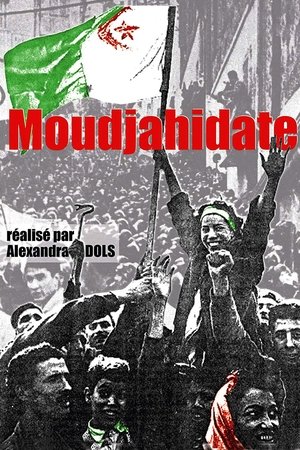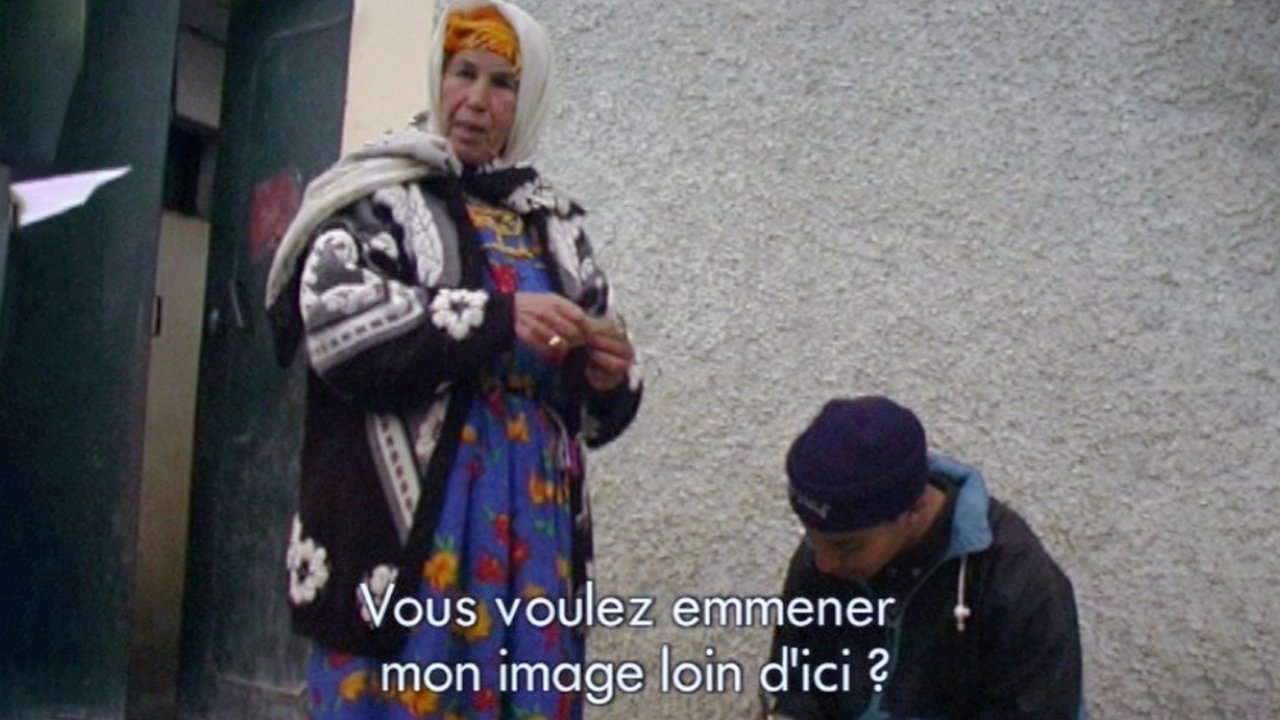
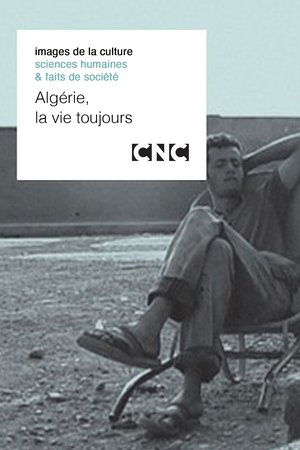
Algérie, la vie toujours(2001)






Movie: Algérie, la vie toujours

Algérie, la vie toujours
HomePage
Overview
Release Date
2001-01-01
Average
10
Rating:
5.0 startsTagline
Genres
Languages:
Keywords
Recommendations Movies
 7.4
7.4Doctor Who: The Next Doctor(en)
The Doctor arrives in Victorian London. It's Christmas, but snow isn't the only thing descending on the tranquil and jubilant civilization, as familiar silver giants from an alternate reality are amassing in numbers. The Cybermen are on the move again, and the only beings who can stop them are the Doctor and... another Doctor?
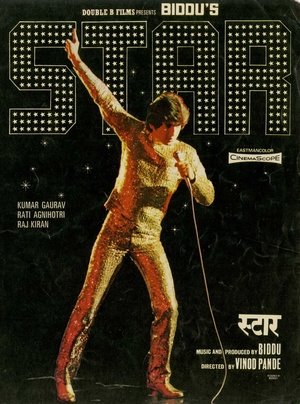 5.8
5.8Star(hi)
Dev Kumar Verma comes from a middle-class family and must find employment to support his dad and mom. Dev, however, has set his mind upon becoming a music sensation like Elvis Presley. He loses his job because of this, and refuses to work until and unless he gets a job to his liking, much to the dismay of his parents and his brother, Shiv Kumar. Dev does get employment at Charlie's Disco, where he meets with Maya and falls in love with her. When Charlie's Disco's competitor, Rana, finds out about Dev, he wants to hire Dev, but Dev decides to continue to work with Charlie's Disco, as a result Dev and Charlie get a beating by Rana's men, and Dev is unable to sing. After recuperating, Dev is devastated to find out that Maya and Shiv Kumar are in love with each other. What impact will this have on Dev and his brother on one hand, and what of his career in music?
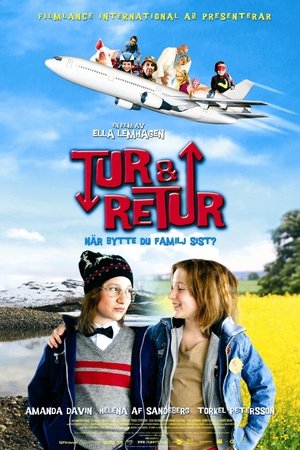 6.3
6.3Round-Trip(sv)
11-year old Julia and Martin are tired of having to flip back and forth between their divorced parents and when they realize how much they look like, they realize to swap places. After meeting at an airport, the each embark on a journey that will change their lives forever.
 4.5
4.5PorNO(it)
Max films his friends having lecherous fun at his own birthday party; unaware of how it will change his life. Just out of high school, by haphazard, he becomes a big porno producer. His father, a principled police major, chases porno makers, not suspecting that one of them lives in his own apartment. Hoodlums and girls from good families, corrupted policemen, petty dealers find themselves in a luring and scary world of porno.
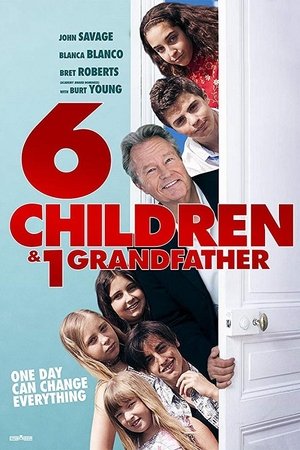 5.7
5.7Six Children and One Grandfather(en)
David McDoll is a selfish and wealthy man living an enviable lifestyle in his large villa and collecting fancy cars. However, his life is about to be changed forever when he inherits his six grandchildren. His glamorous lifestyle quickly becomes complete chaos. But he will learn a valuable lesson that teaches him about placing family first and discovering a newfound appreciation for life.
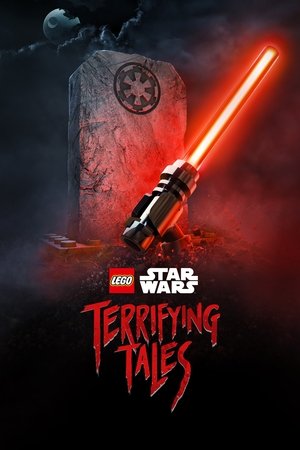 6.9
6.9LEGO Star Wars Terrifying Tales(en)
Poe Dameron and BB-8 must face the greedy crime boss Graballa the Hutt, who has purchased Darth Vader’s castle and is renovating it into the galaxy’s first all-inclusive Sith-inspired luxury hotel.
 5.1
5.1The Viking War(en)
Ingrid and her siblings are on the run from the Beserkers who have begun invading the villages, taking over, savagely using the residents on a game where they vs a Beserker, and if they win, they get to survive - only, no one ever wins. The siblings are trying to escape the Beserkers after they violently murdered and took over their town. However, the Beserkers are on their trail, and want to put them in the game.
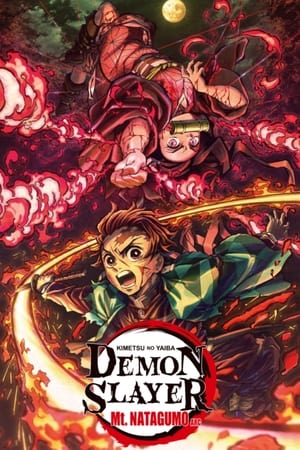 7.8
7.8Demon Slayer: Kimetsu no Yaiba Mt. Natagumo Arc(ja)
A recap of Kimetsu no Yaiba episodes 15–21, with new footage and special end credits. Tanjiro, now a registered Demon Slayer, teams up with fellow slayers Zenitsu and Inosuke to investigate missing person cases on the mountain Natagumo. After the group is split up during a fight with possessed swordfighters, they slowly begin to realize the entire mountain is being controlled by a family of Demon spider creatures.
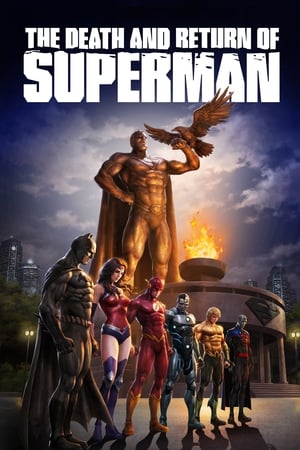 6.7
6.7The Death and Return of Superman(en)
The Death of Superman and Reign of the Supermen now presented as an over two-hour unabridged and seamless animated feature. Witness the no-holds-barred battle between the Justice League and an unstoppable alien force known only as Doomsday, a battle that only Superman can finish and will forever change the face of Metropolis.
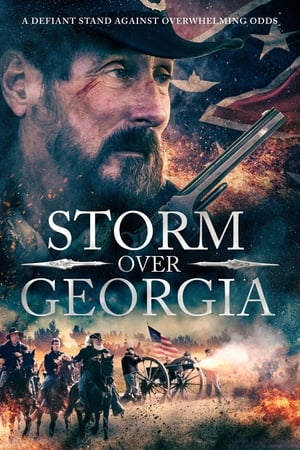 5.7
5.7Storm Over Georgia(en)
In the middle of Sherman's March, in eastern Georgia, Confederate infantry, cavalry, and artillery make a bold stand against the overwhelming numbers of the Union army as it tears across Georgia.
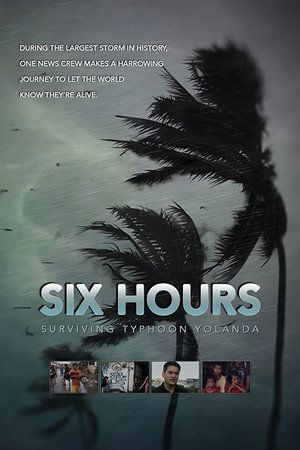 8.5
8.5Six Hours: Surviving Typhoon Yolanda(en)
In the middle of a broadcast about Typhoon Yolanda's initial impact, reporter Jiggy Manicad was faced with the reality that he no longer had communication with his station. They were, for all intents and purposes, stranded in Tacloban. With little option, and his crew started the six hour walk to Alto, where the closest broadcast antenna was to be found. Letting the world know what was happening to was a priority, but they were driven by the need to let their families and friends know they were all still alive. Along the way, they encountered residents and victims of the massive typhoon, and with each step it became increasingly clear just how devastating this storm was. This was a storm that was going to change lives.
 7.4
7.4Tudo por um Pop Star 2(pt)
Three friends who live in Resende, in the interior of Rio de Janeiro, and plan a trip in Babette's Beetle convertible to celebrate their 15 years of friendship and attend the closing show of the tour of a great pop star, who studied with them as a teenager. and today he is the most famous young singer in Brazil.
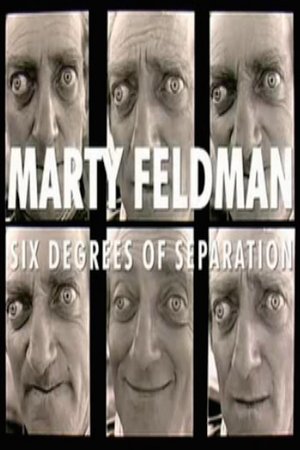 7.8
7.8Marty Feldman: Six Degrees of Separation(en)
A documentary about the legendary and influential comedian, actor and writer, who went out from the BBC to conquer Hollywood, but sadly the system quickly withdrew its support when they couldn't contain his talents. This portrait is spiked with many comments from people who knew Feldman privately or had dealt with him professionally. His early death sadly rendered him all but forgotten by the public. The compilation consists of interviews, some film clips and photos as well as various audio clips from him.
12(en)
After blowing his professional ballet career, John's only way to redeem himself is to concoct the demise of his former partner, Leah, who he blames for his downfall; he rehearses his salvation in his mind in the way that he rehearses a dance, but being able to break from the routine will be the key to his success.
 6.0
6.0Star(fr)
Star is a young graffiti writer, the best in his city, Paris. His reputation attracts him as much into art galleries than in the police precincts. Accused of vandalism, he faces jail. Despite the threat, he decides to go to Rome with his crew in search of the meaning of his art.
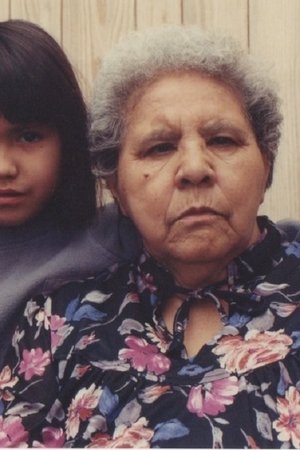 8.0
8.0The Learning Path(en)
Native control of education is explored in THE LEARNING PATH. Director Todd, a Metis, introduces Edmonton elders Ann Anderson, Eva Cardinal, and Olive Dickason, remarkable educators who are working with younger natives. They recount harrowing experiences at reservation schools, memories which fuelled their determination to preserve their language and identities. Using a unique blend of documentary footage, dramatic re-enactments, and archival film, Todd weaves together the life stories of three unsung heroines who are making education relevant in today's native communities.
 5.9
5.9A(ja)
Roughly chronological, from 3/96 to 11/96, with a coda in spring of 1997: inside compounds of Aum Shinrikyo, a Buddhist sect led by Shoko Asahara. (Members confessed to a murderous sarin attack in the Tokyo subway in 1995.) We see what they eat, where they sleep, and how they respond to media scrutiny, on-going trials, the shrinking of their fortunes, and the criticism of society. Central focus is placed on Hiroshi Araki, a young man who finds himself elevated to chief spokesman for Aum after its leaders are arrested. Araki faces extreme hostility from the Japanese public, who find it hard to believe that most followers of the cult had no idea of the attacks and even harder to understand why these followers remain devoted to the religion, if not the violence.
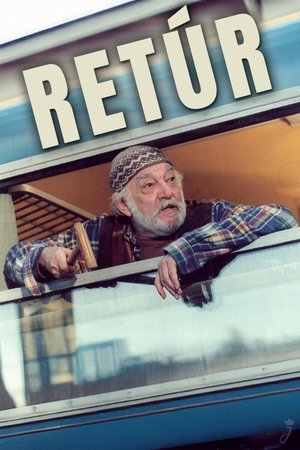 6.9
6.9Return Ticket(hu)
Five old men and a kid are travelling in a train's cabin without purpose. They travel because it's free and they don't have another place to stay. From their conversations we learn the tragedies of their lives. Also the hidden interlockings of their faith will out slowly.
Similar Movies
 6.0
6.0Glimpses of Morocco and Algiers(en)
This FitzPatrick Traveltalk short visits the cities of Casablanca, Rabat, and Marrakesh in Morocco, as well as the city of Algiers in Algeria.
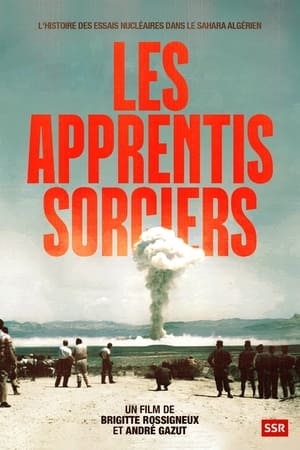 10.0
10.0The Sorcerer's Apprentice(fr)
60 years ago, in the Algerian desert, an atomic bomb, equivalent to three or even four times Hiroshima, exploded. Named the “Blue Gerboise”, it was the first atomic bomb tested by France, and of hitherto unrivaled power. This 70 kiloton plutonium bomb was launched in the early morning, in the Reggane region, in southern Algeria, during the French colonial era. If this test allowed France to become the 4th nuclear power in the world, it had catastrophic repercussions. France had, at the time, certified that the radiation was well below the standard safety threshold. However, in 2013, declassified files revealed that the level of radioactivity had been much higher than announced, and had been recorded from West Africa to the south of Spain.
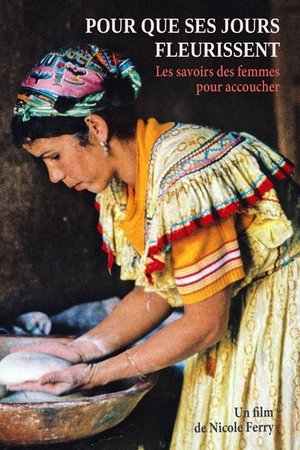 10.0
10.0Pour Que Ses Jours Fleurissent(fr)
Six o'clock in the morning, the sun rises behind the Djurdjura mountain. With precise gestures, learned since childhood, Ouardia raises the water, crouches down to splash his face with cool water. Soon her baby will be born. Hadjila, the traditional midwife, prepares herself internally to help the mother complete the transition from separation. This film talks about the knowledge surrounding birth that Kabyle women have passed down for centuries; knowledge that European women seek to rediscover in order to reclaim this founding passage of our lives.
 7.2
7.2Dawn of the Damned(fr)
This excellent feature-length documentary - the story of the imperialist colonization of Africa - is a film about death. Its most shocking sequences derive from the captured French film archives in Algeria containing - unbelievably - masses of French-shot documentary footage of their tortures, massacres and executions of Algerians. The real death of children, passers-by, resistance fighters, one after the other, becomes unbearable. Rather than be blatant propaganda, the film convinces entirely by its visual evidence, constituting an object lesson for revolutionary cinema.
 10.0
10.0Algerian Refugees(fr)
Directed by Pierre Clément and Djamel-Eddine Chanderli, produced by the FLN Information Service in 1958, this film is a rare document. Pierre Clément is considered one of the founders of Algerian cinema. In this film he shows images of Algerian refugee camps in Tunisia and their living conditions. A restored DVD version released in 2016, from the 35 mm original donated by Pierre Clément to the Contemporary International Documentation Library (BDIC).
 7.0
7.0143 Sahara Street(fr)
Alone in a small white house on the edge of national road 1, the Trans-Saharan road, which connects Algiers to Tamanrasset crossing the immensity of the desert, Malika, 74, one day opened her door to the director Hassen Ferhani, who came there to scout with his friend Chawki Amari, journalist at El Watan and author of the story Nationale 1 which relates his journey on this north-south axis of more than 2000 km. The Malika of Amari's novel, which Ferhani admits to having first perceived as a "literary fantasy", suddenly takes on an unsuspected human depth in this environment naturally hostile to man. She lends herself to the film project as she welcomes her clients, with an economy of gestures and words, an impression reinforced by the mystery that surrounds her and the rare elements of her biography which suggest that she is not from the region, that she left the fertile north of Algeria to settle in the desert where she lives with a dog and a cat.
 0.0
0.0Ancient Algiers(ar)
In the heart of the historic Casbah of Algiers, buzzing with life, we follow a day in the life of Mousaab, a passionate Algerian teenager navigating his challenges while his love for his local football club runs deep.
 6.0
6.0The Panafrican Festival in Algiers(ar)
Festival panafricain d'Alger is a documentary by William Klein of the music and dance festival held 40 years ago in the streets and in venues all across Algiers. Klein follows the preparations, the rehearsals, the concerts… He blends images of interviews made to writers and advocates of the freedom movements with stock images, thus allowing him to touch on such matters as colonialism, neocolonialism, colonial exploitation, the struggles and battles of the revolutionary movements for Independence.
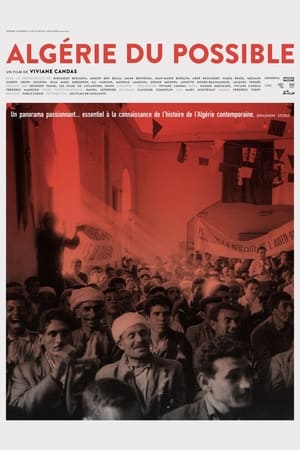 7.5
7.5Algérie du possible(fr)
By meeting his former comrades in combat, the film follows the journey of Yves Mathieu, anti-colonialist in Black Africa then lawyer for the FLN. When Algeria became independent, he drafted the Decrees of March on vacant property and self-management, promulgated in 1963 by Ahmed Ben Bella. Yves Mathieu's life is punctuated by his commitments in an Algeria that was then called "The Lighthouse of the Third World". The director, who is his daughter, returns to the conditions of his death in 1966.
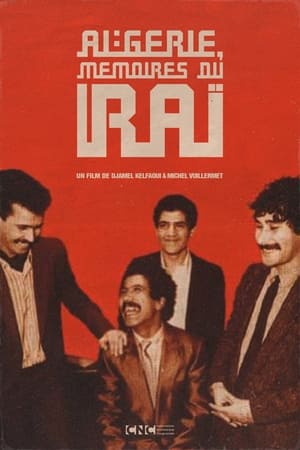 10.0
10.0Algeria, Memoirs of Raï(fr)
In the 1980s, Algeria experienced a tumultuous social context which reached its peak during the riots of October 88. This wave of protest, with youth as its figurehead, echoed the texts of raï singers. Thirst for freedom, misery of life and the aspirations of youth are among the main themes of their works which will inspire an entire generation. More than music, raï celebrates the Arabic language and becomes a vector of Algerian culture, thus providing the cultural weapons of emerging Algerian nationalism With Cheb Khaled, Cheb Mami and Chaba Fadela as leaders of the movement, raï is also a way of telling and reflecting the essence of Algeria in these difficult times. While the threat weighs on artists in Algeria, their exile allows raï to be exported internationally and thus, to bring the colors of Algeria to life throughout the world.
 10.0
10.0Stay In Algeria(fr)
Algeria, summer 1962, eight hundred thousand French people left their native land in a tragic exodus. But 200,000 of them decided to attempt the adventure of independent Algeria. Over the following decades, political developments would push many of these pieds-noirs into exile towards France. But some never left. Germaine, Adrien, Cécile, Guy, Jean-Paul, Marie-France, Denis and Félix, Algerians of European origin, are among them. Some have Algerian nationality, others do not. Some speak Arabic, others do not. They are the last witnesses to the little-known history of these Europeans who remained out of loyalty to an ideal, a taste for adventure and an unconditional love for a land where they were born, despite all the ups and downs that the free Algeria in full construction had to go through.
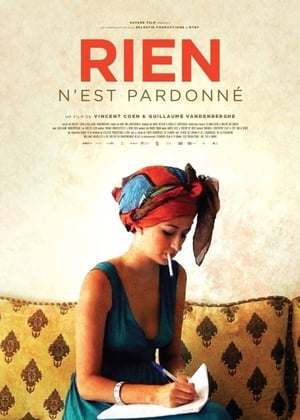 0.0
0.0Nothing is Forgiven(fr)
The story of Zineb El Rhazoui, a young Moroccan woman who, in the wake of the Charlie Hebdo attack, finds her life radically transformed : from a censored journalist in Morocco she becomes the most protected woman of France.
 7.6
7.6The Zerda and the Songs of Forgetting(fr)
“La Zerda and the songs of oblivion” (1982) is one of only two films made by the Algerian novelist Assia Djebar, with “La Nouba des femmes du mont Chenoua” (1977). Powerful poetic essay based on archives, in which Assia Djebar – in collaboration with the poet Malek Alloula and the composer Ahmed Essyad – deconstructs the French colonial propaganda of the Pathé-Gaumont newsreels from 1912 to 1942, to reveal the signs of revolt among the subjugated North African population. Through the reassembly of these propaganda images, Djebar recovers the history of the Zerda ceremonies, suggesting that the power and mysticism of this tradition were obliterated and erased by the predatory voyeurism of the colonial gaze. This very gaze is thus subverted and a hidden tradition of resistance and struggle is revealed, against any exoticizing and orientalist temptation.
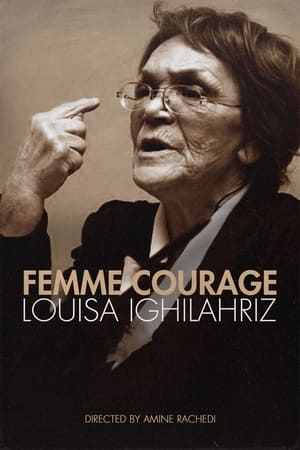 10.0
10.0Woman of Courage - Louisa Ighilahriz(ar)
The autobiographical account of the tormented life of a witness of the century: Louisa Ighilahriz, activist and leading figure in Algerian independence. A student, she joined the independence struggle at the age of 20, joining the ranks of the FLN on the eve of the Battle of Algiers in late 1956 under the name Lila. She took part in the high school students' strike, then fled into the maquis when she was actively sought after. She was part of the French FLN support network of "suitcase carriers" during the Battle of Algiers. Seriously wounded alongside her network leader, Saïd Bakel, during an ambush in 1957, hospitalized and then imprisoned, she suffered numerous tortures in French prisons. She will be saved from certain death by an anonymous person, she will seek, for forty years, to find him just to show him her gratitude... Emblematic of the painful Franco-Algerian history, Louisa's story is poignant and imbued with humanism.
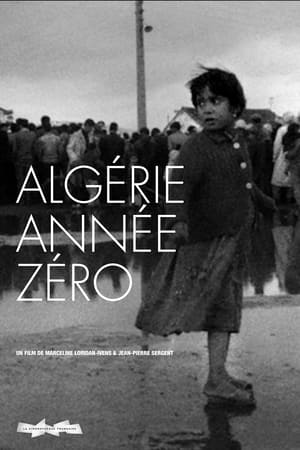 10.0
10.0Algeria, Year Zero(fr)
Documentary on the beginnings of Algerian independence filmed during the summer of 1962 in Algiers. The film was banned in France and Algeria but won the Grand Prize at the Leipzig International Film Festival in 1965. Out of friendship, the production company Images de France sent an operator, Bruno Muel, who later declared: "For those who were called to Algeria (for me, 1956-58), participating in a film on independence was a victory over horror, lies and absurdity. It was also the beginning of my commitment to the cinema."
